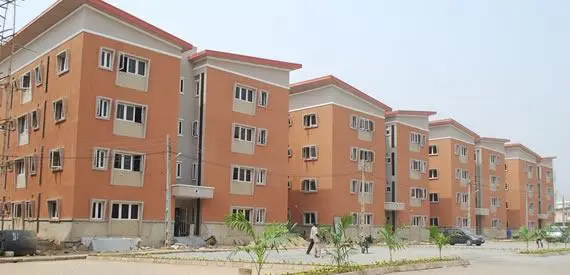Real estate investment plays a vital role in driving economic development in Nigeria, contributing to job creation, infrastructure development, urbanization, and overall economic growth. As one of the key sectors in the country, the real estate industry has a far-reaching impact on various aspects of Nigeria’s economy. This article explores the significant role that real estate investment plays in driving economic development in Nigeria.
1. Job Creation
Real estate development projects, whether residential, commercial, or industrial, require a substantial workforce. From architects, engineers, and construction workers to property managers, real estate agents, and support staff, the industry generates a wide range of employment opportunities. This not only reduces unemployment rates but also enhances the overall quality of life by providing sustainable livelihoods.
2. Infrastructure Development
Real estate investments often go hand in hand with the development of critical infrastructure, such as roads, bridges, utilities, and public amenities. These infrastructure projects have a multiplier effect on economic growth, as they improve connectivity, facilitate trade and commerce, and attract further investment to the region.
3. Urbanization and Modernization
Rapid urbanization is a significant trend in Nigeria, with a growing number of people moving to urban centers in search of better opportunities. Real estate investment contributes to the construction of modern residential complexes, commercial spaces, and mixed-use developments, accommodating the needs of the urban population and enhancing the quality of urban life.
4. Revenue Generation
The real estate sector generates substantial revenue for governments through property taxes, land use charges, and other related fees. These revenues contribute to funding public services, infrastructure projects, and social programs that promote economic development and enhance the overall well-being of citizens.
5. Foreign Direct Investment (FDI)
Real estate investment often attracts foreign direct investment into the country. International investors see the potential in Nigeria’s growing real estate market and are drawn to opportunities in various sectors, such as commercial properties, residential developments, and hospitality establishments. This influx of foreign capital further stimulates economic growth.
6. Tourism and Hospitality Industry
Investments in the tourism and hospitality sector, including hotels, resorts, and vacation rentals, boost Nigeria’s tourism industry. These establishments attract both domestic and international tourists, contributing to increased economic activity, job creation, and foreign exchange earnings.
7. Affordable Housing and Social Development
Real estate investment can address the critical need for affordable housing, which is a major challenge in Nigeria. Providing affordable and decent housing options not only improves living conditions but also supports social stability and community development.
8. Wealth Creation and Asset Appreciation
Real estate investment provides individuals with the opportunity to build wealth over time. Property values often appreciate, allowing investors to benefit from capital gains. This wealth creation enhances economic mobility and contributes to a more equitable society.
9. Small and Medium Enterprises (SMEs) Support
The real estate sector provides a platform for small and medium-sized businesses to thrive. Commercial real estate spaces serve as retail shops, offices, and workspaces for entrepreneurs and SMEs, driving business activity and economic diversification.
10. Economic Diversification
Real estate investment contributes to economic diversification by providing alternative avenues for investment and entrepreneurship. As the economy becomes less reliant on traditional sectors, such as oil and gas, real estate can play a significant role in promoting a more balanced and resilient economy.
Real estate investment plays a multifaceted role in driving economic development in Nigeria. It goes beyond constructing buildings; it fuels job creation, infrastructure development, urbanization, and revenue generation. By attracting local and foreign investors, supporting various industries, and enhancing living standards, the real estate sector contributes significantly to Nigeria’s economic growth and sustainable development. As the country continues to progress, the role of real estate investment will remain pivotal in shaping its economic landscape.



